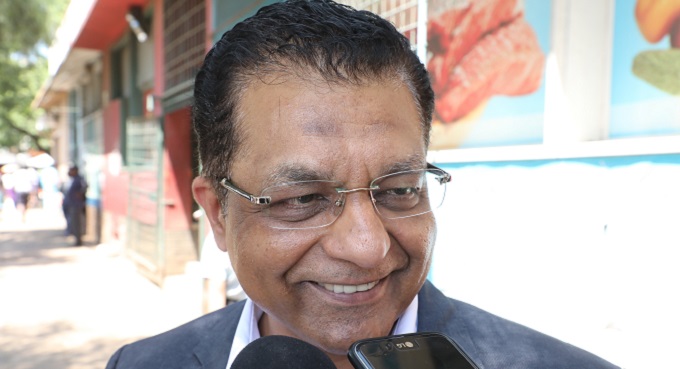SADC leather sector hails SIPS training on Intellectual Property Rights

Business Reporter
PLAYERS in the leather industry from the Southern African Development Community (SADC) have commended the Support to the Industrialisation and Production Sectors (SIPS) programme for convening a regional capacity building training workshop on strengthening national and regional Intellectual Property Rights Policies and Regulations (IPRs) and Trade Related Intellectual Property Aspects of Intellectual Property Rights (TRIPS) compliance.
SIPS, a programme aimed at improving private sector participation in the regional leather, pharmaceutical and medical value chains in the SADC region, convened the recent training workshop in Harare in partnership with the African Regional Intellectual Property Organisation (ARIPO) in Harare.
The workshops were conducted in hybrid format with virtual and physical participants from SADC member States composed of policy makers, and SMEs in the leather and anti-retroviral value chains.
SIPS is supported by the European Union (EU) and the German Federal Ministry for Economic Cooperation and Development (BMZ) to facilitate expansion of regional value chains and promote dialogue between the private and public sectors.
In a post event update, the SADC Secretariat said the training workshops educated high-level officials across the region on the nature and policy implications of their IPR obligations and the way these can be deployed in support of key sectors within member States.
“The workshops also raised awareness of IPRs among selected SMEs in SADC member States in the leather and anti-retroviral value chains,” said the regional bloc.
“Topics covered included; industrial designs and the leather sector, introduction to geographical indications; introduction to patenting and the leather sector, trademarks and the leather sector, among others.”
SMEs representatives from the leather industry who attended the training described it as fruitful, informative, and an eye opener, which will help to strengthen the value chains in the sector across the Region.
Mr Fungai Zvinondiramba, secretary of the Bulawayo Leather Cluster and also a member of the Zimbabwe Leather Development Council, was quoted as saying that such initiatives by SIPS would go a long way in developing the leather value chains in SADC.
He said the leather industry in Zimbabwe was being revised because hence capacitation of SMEs and big companies is critical.
He commended support from the EU through the Common Market for Eastern and Southern Africa (Comesa) and the Africa Leather and Leather Products Institute (ALLPI towards strengthening the leather value chain across the continent in a seamless and cost-effective manner.
Mr Zvinondiramba said through the SIPS and ALLPI initiatives, SMEs in the leather industry were being capacitated with machines through a clustering system in Harare and Bulawayo, as well as a leather design studio.
SIPS was targeting to create and capacitate 15 clusters in Zimbabwe and support these with the design studio. He called for an investment in more training and machinery so as to strengthen the value chains in the sector.
Mr Robert Shabangu, chairperson of the Eswatini Leather Association, said he had benefited a lot from the SIPS training workshop on IPR and vowed to impart the knowledge learnt to the leather sector in Eswatini.
The director of Phanepha Limited of Botswana, Mr Tlamelo Botlhole, said the workshop had enabled him to make friends in the SADC leather sector through which he was going to learn more about the industry.
Leather clusters coordinator and lecturer in Tanzania, Dr Cecilia China, commended SADC and the SIPS initiative on leather value chains saying the workshop had gone a long way in equipping her with skills on how to manage intellectual properties in the leather industry.
Mr Thulani Ndlovu, a project officer with Solidaridad, said the training was an eye opener to most SMEs as there were a lot of things in IPR, which they were not familiar with and SMEs needed to take note of to improve their products. Already, Solidaridad is implementing programmes to promote green innovative solutions in the leather sectors of Tanzania and Zimbabwe to create market linkages for leather products at domestic, regional and international levels through a grant supported by SIPS to the value of US$500,000.00.
Mr Masopja Moshoe from Lesotho said the SIPS workshop was very informative and brought the “best of the best” in the knowledge of IPRs.
Mrs Lopang Baig, secretary of the Leather Association of Botswana, said she was pleased to attend the workshop and learnt the importance of IPRs.
Ms Rakkel Mwandi, Leather Coordinator at RS Leather of Namibia, said the training was very fruitful and that she would teach others back in her country of the importance of IPRs.
All the workshop participants were presented with attendance certificates at the end of the raining.








Comments